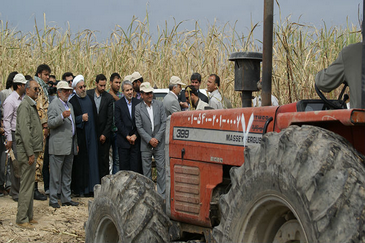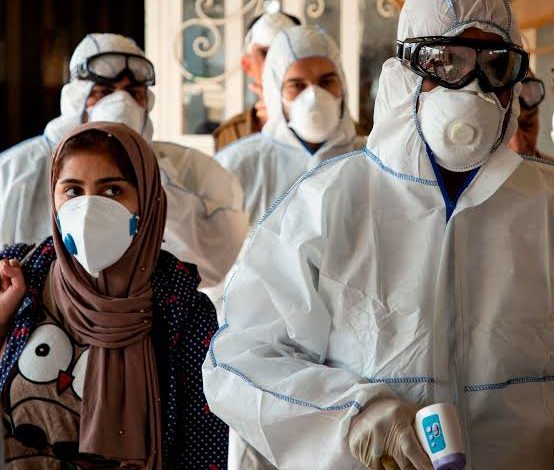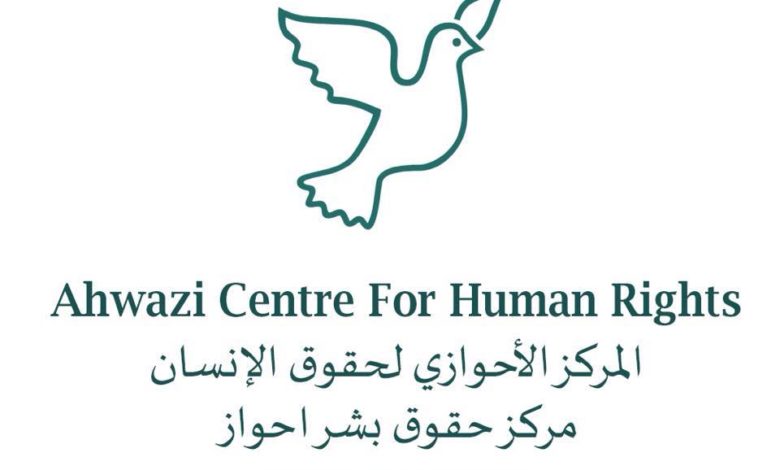Sugar cane leaves a sour taste for dispossessed Ahwazis

The Iranian regime in 1991 launched a massive program of sugarcane growing and refining in Al-Ahwaz region, seizing vast tracts of land and dispossessing thousands of farmers and other rural peoples to do so, supposedly in the name of creating a domestic industry.
The sugarcane program, which continues to this day, raises many questions. Are these projects really economic or are they wholly political? Is their objective sugar production or a pretext for seizing more Arabs’ land as part of the Islamic Republic’s project to ‘Persian-ize’ the Ahwaz region and deprive more generations of Ahwazis of their historical and legitimate rights?
While the idea of sugarcane-growing and refining on Ahwazi Arabs’ lands is not a new one, with such plans first put forward several decades ago, the implementation of the large-scale program in 1991 and its continuing devastating effects show that it was the realization of a longstanding Iranian wish to evict Arabs from the lands and bring more Persians to change the region’s character and demographic composition in favour of Iranians, not only in theory but in fact.
The regime’s development and expansion of the sugar plantations is widely believed to have been a long-planned project.
The agenda behind the sugarcane project, as with others devised by the current regime, is straightforward – to provide a pretext for the plunder of the remaining territory of the Arab working class, creating an environment of despair, poverty, misery and unemployment in the Ahwazi areas and further intensifying the suffering of the peoples there already subjected to systemic and grotesque injustice and nakedly racist policies.
The sugarcane program has caused massive environmental devastation, with the region’s rivers, which are the source of drinking and bathing water as well as for water to irrigate the once-lush farmlands, heavily polluted by the untreated toxic run-off from the refineries. Much of the once-fertile farmland has been reduced to barren vistas, forcing countless farmers whose families had cultivated the lands for centuries to seek work in the state-run sugar refineries, whose officials turned them away since Arab peoples are discriminated against by the Iranian state in a manner that can only be described as unofficial apartheid.
In a half-hearted effort to reduce the anger of the dispossessed and disenfranchised Ahwazi people, whose lands contain over 90 percent of the oil and gas resources claimed by Iran, the regime authorities eventually relented and gave some of the unskilled and menial jobs at the refineries and processing plants, such as security guards’ or cleaners’ positions, to the younger Ahwazi people. Any well-paid or decent jobs there, however, are reserved for the Iranian settlers brought in from other areas, who the regime persuades to work in the Ahwaz region by offering incentives such as specially constructed settlements furnished with amenities not available to the indigenous Ahwazi peoples.
Livestock farmers in the areas around the sugarcane farms need to be extremely careful of where they allow their animals to graze since the animals are often shot by security guards at the farms or poisoned by eating toxic substances.
The sugarcane refineries’ pollution of the region’s waterways, of which the Karoon is the main one, is another crisis for the already suffering people, with the refineries also using massive amounts of river water in the refining process before pumped the resulting heavily polluted waste water loaded with toxins and chemicals back into the rivers without treatment.This pollution has resulted in the emergence of diseases, many of them reaching epidemic levels.
Setting fire to the sugarcane fields during the harvest seasons dragged the lives of Ahwazis into a nightmare by triggering a massive ecological catastrophe.

To add further insult to injury, the regime has also dug special channels to divert some of the toxic untreated chemical-laden waste water used by the refineries to the Ahwaz region’s famed marshlands, doing so supposedly in the name of recovering them after the regime built massive dams to divert the fresh water which once made them lush habitats for marine life and wildlife to Persian areas. Rather than benefit what remains of the once-pristine marshlands, however, the deliberate manmade influx of thousands of gallons of polluted water has led to environmental catastrophe and the deaths of countless birds and fish there.
The surreal idea that the refineries’ heavily polluted waste water will benefit the Ahwaz region’s once-bounteous marshlands is of a piece with the equally ludicrous lie that the sugarcane project was created to achieve anything but further confiscation of Arabs’ lands as part of the regime’s policy of ethnic cleansing.
This is just one more of the ongoing tragedies inflicted on the Ahwazi Arabs, whose rights are ignored, whose land is destroyed, and who are treated as at best guinea pigs for successive Iranian regimes’ experimentation.




